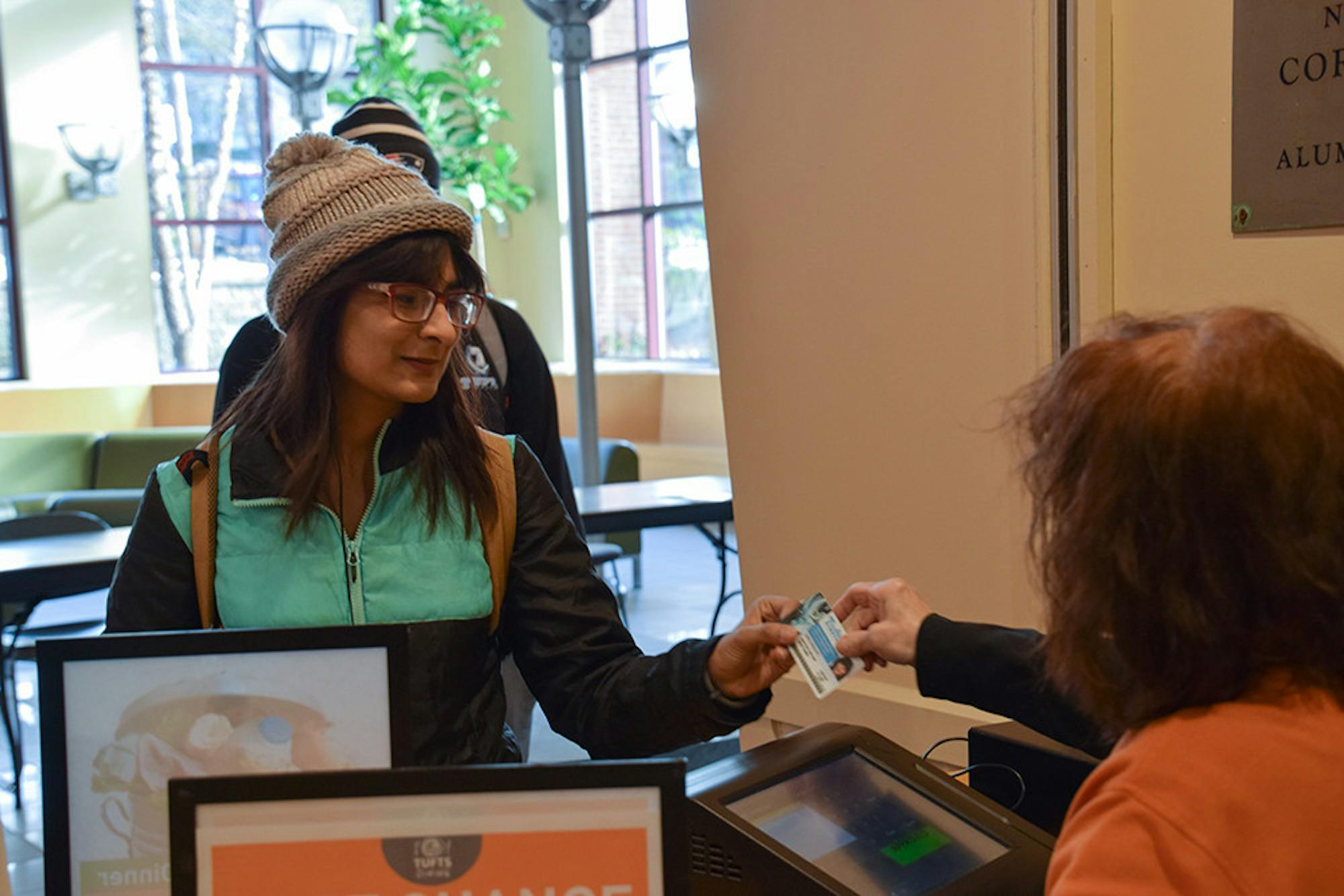Swipe It Forward, an initiative that allows students to donate extra meal swipes to students in need, was recently launched by Tufts Dining Services, the Office for Student Success and Advising and the Tufts Community Union (TCU) Senate's Culture, Ethnicity, Community Affairs (CECA) Committee.
According to TCU Senator Shannon Lee, students on the premium meal plan can donate one meal while students on other plans can donate up to four meals via a web form. This semester, the meal donation period closes on March 1.
Lee, a first-year, added that any student can request up to six meals, which will be added to their accounts within 48 hours. These swipes can be used at the Dewick-MacPhie and Carmichael Dining Centers. If students need more than six meals, they can contact Associate Dean for Student Success and Advising Robert Mack so their needs can be individually addressed.
Mack said the Swipe It Forward initiative is primarily based on the trust that the students requesting meals need them. Requested swipes cannot be used until all of a student’s swipes for a semester have been used up.
“For this initial semester, we’ve opened it up for anyone who has identified themselves as needing a meal,” Mack said.
Jacqueline Chen, who chairs TCU Senate's Student Outreach Committee, explained that the goal was to make the process of requesting meals anonymous and simple. TCU Senate members receive no information about which students are donating or requesting meals.
“We wanted students to be able to take meals from the bank, no questions asked, so they wouldn’t have to justify why they need meals,” Chen, a sophomore, said.
Mack explained that the Swipe It Forward program aims to eliminate the financial barrier some students face in obtaining meals. He noted that some students have to sacrifice meals to pay other expenses like medical bills or tuition costs and wanted to preemptively combat the problem.
“This is just about understanding there’s a need and wanting to address it before we had students getting to the point where they were needing us to really respond to it,” Mack said.
Director of Dining and Business Services Patti Klos said that this program is similar to when friends swipe each other into the dining halls.
“I know that students 'meal in' their friends,” Klos said. “I think students are accustomed to helping each other out.”
Mack said this meal sharing program is one of many programs targeted towards easing financial burdens on students. He added that this semester, the university is launching other programs intended to support medical treatment for students and fund students trying to take part in co-curricular activities on and off campus.
Having spoken to her counterparts at other universities who had successfully instituted similar programs, Klos said she felt confident that Dining Services can manage this program.
Chen said that outreach efforts to publicize the program have included table tents, tabling at Dewick’s Waste Less Dinner and advertising in TCU Senate’s weekly Two Minute Thursday video updates.
Mack said that in an effort to encourage donations, he and TCU Senate members worked to have different offices and departments co-sponsor weeks. In the first week of the program, the Dean of Student Affairs Office and the Office for Student Success and Advising matched up to 100 meals that were donated, according to Mack.
“I think it’s helpful to make sure that departments are aware that this is stuff that we’re doing on our campus and for everyone to be a part since we are a community,” Mack said.
Mack said the number of meals available in the meal bank will be updated on the Office for Student Success and Advising's website. Mack explained that he maintains a spreadsheet with data about all meal requests and donations. Klos said that the information is then sent to Dining Services, where two staff members maintain the number of meals in each student’s account.
Chen added that the program is being piloted this semester, and organizers will collect data and analyze the program at the end of the academic year.
“What we’re doing right now is piloting the program — seeing what the demand is, seeing how many people donate, how many people request meals — and we’ll adjust it at the end of the semester,” Chen said.
Lee suggested that gathering data about meals this semester could help TCU Senate re-evaluate the pricing and sizing of existing meal plans and potentially approach Dining Services with alternative options.
“We want to use the evidence and the research from this pilot program to persuade Dining Services to change the meal plan numbers,” Lee said. “My hope is that over the course of my four years at Tufts, this will eventually happen because it’s something that the student body has been asking for for a really long time.”






